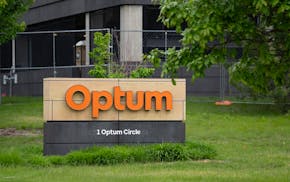With a new federal approval in hand, ANI Pharmaceuticals Inc. is reintroducing a drug with new applications, including the possible treatment of several rare diseases.
ANI, the Baudette, Minn.-based company known for making generic and branded medications, in January launched purified Cortrophin Gel marketed to treat inflammation and stress associated with 23 autoimmune diseases — nine of which are considered rare.
In turn, the company has created a rare disease business unit and recently hired Dr. Mary Pao as its chief medical officer.
"We've launched this drug ... to provide greater choice for both physicians and patients," Pao said in an interview.
ANI secured approval for Cortrophin from the U.S. Food and Drug Administration in October. The company said the drug can be used to treat flareups for such conditions as rheumatoid arthritis, multiple sclerosis and nephrotic syndrome. Rarer conditions include systemic dermatomyositis (polymyositis), severe erythema multiforme (Stevens-Johnson syndrome) and optic neuritis.
A rare disease is defined as one affecting fewer than 200,000 people in the U.S. The National Organization for Rare Disorders reports that there are approximately 7,000 rare diseases affecting nearly 30 million Americans.
"Historically, these diseases did not garner a lot of interest from pharmaceutical companies because it's hard to invest a lot of money in the development of a drug when there's very little return," said Patti Engel, CEO of Eagan-based Engage Health, which offers research and market development in rare diseases.
The federal Orphan Drug Act of 1983 created incentives for drug manufacturers to invest in rare disease medications. Over time, this has helped bolster the business case.
"The market for rare disease therapy has grown quite a lot," Engel said. "The orphan drug market since the '80s is robust."
ANI is reintroducing Cortrophin Gel, which was first developed in 1954 but was no longer being made. The company acquired two Cortrophin new drug applications (NDA) from pharma giant Merck & Co. for $75 million in 2016.
"Our drug is adrenocorticotropic hormone, ACTH, and that has only had one available treatment option for the past two decades," Pao said.
Pao said ANI's drug will be more affordable. The only other available ACTH drug is Acthar Gel, produced by Mallinckrodt Pharmaceuticals. That company used its monopoly to continue raising the price of the drug and illegally acquired the rights to a competing drug in development to keep it off the market, the Federal Trade Commission charged in a recent antitrust complaint. In 2017, the company agreed to pay $100 million to settle the case.
"We know that this is a drug that works," Pao said. "We know that there's a huge amount of unmet need across the autoimmune diseases in which we have an indication."
On Tuesday, ANI reported a net fourth-quarter loss of $24.1 million. The company's non-GAAP earnings per share of $0.54 fell short of analysts' expectations of $0.74 per share.
It posted higher-than-expected revenue of $60.9 million, an increase of 6.4% from a year ago. ANI's stock closed down 18.7% for the day.
Elliot Wilbur, a research analyst with Florida-based Raymond James & Associates, said the company did not offer enough specifics about its sales plan for the new drug.
"Though the company detailed key aspects of the initial launch phase around Cortrophin gel, management did not offer markets any sort of North Star or beacon from which to gauge the appropriateness and payback associated with what the company did quantify: its expected spending...[which is] roughly twice our original assumption," Wilbur wrote.
ANI closed in November on its $196.9 million acquisition of New Jersey-based Novitium Pharma, the company's largest acquisition.
Generic sales accounted for 68% of ANI's fourth quarter; branded pharmaceuticals were 24% of sales. The company also has revenue from contract manufacturing and royalties.
For 2022, ANI forecasts revenue in the range of $260 million and $275 million. At the low end, that would translate into growth of about 20%.

Delta hiked fares for solo travelers, until Twin Cities travel experts caught the change

In first speech back, UnitedHealth's new CEO pledges to review hot-button issues

A child had measles at Mall of America, concerning state health officials who don't know source

Ramstad: Gov. Walz, things are not getting done in Minnesota

